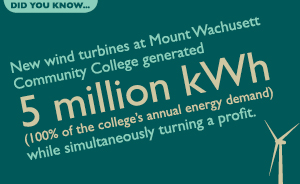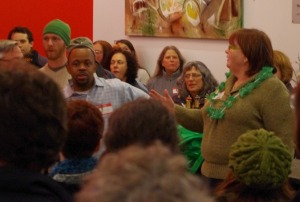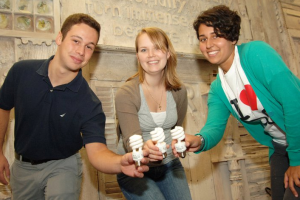By Jenny Jocks Stelzer, Sustainability Council Chair and English Faculty, College of Liberal Arts, Robert Morris University
(This article appears in the March, 2012 issue of The ACUPCC Implementer)
In the 2011-2012 academic year, faculty of the College of Liberal Arts (CLA) on Robert Morris University’s Assessment Committee determined that the university should assess our students for awareness of and engagement with sustainability in the same way that the university assesses all students for proficiencies in oral and written communication, quantitative analysis, leadership, and collaboration. Until that point, the university had assessed for cultural awareness, which incorporated diversity as a value prioritized by the university. The CLA decided that sustainability, as defined by environmental, economic, and social justice for this and future generations, should join diversity as an important part of Robert Morris University’s role in preparing students to not only be career holders in an economy, but to be participants in a democracy as sustainable citizens.
In making these changes, Robert Morris University displays its commitment to the responsibility of higher education to not only prepare students for the workforce, but prepare them as local and global citizens. Because of its commitment to the ACUPCC, RMU has enthusiastically driven curricular change that prepares students to understand the interconnectedness between the individual, society, and the world, and, thus, to become a class of citizens capable of driving sustainability transformation in the future.
Read more ACUPCC Signatory University of Massachusetts Lowell is kicking off the start of the MobilizeU Month by running a dinner and discussion event called “UML Goes Green.”
ACUPCC Signatory University of Massachusetts Lowell is kicking off the start of the MobilizeU Month by running a dinner and discussion event called “UML Goes Green.”



